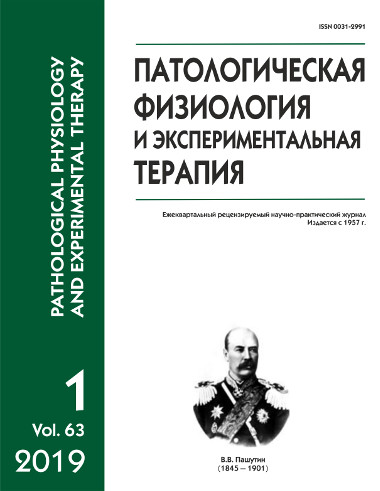Dopamine D2 agonists in the treatment of experimental alcoholism
Keywords:
alcohol, dopamine, D2 receptor, cabergoline, striatum, midbrain, mRNA expression, PCR
Abstract
Introduction. The strategy of dopamine D2 receptor activation has been successfully used in the therapy of dopamine-deficient states such as Parkinson's disease and hyperprolactinemia. Mesolimbic dopamine «hypofunction» in alcohol addicts is closely associated with the reduction in striatal D2 receptor density making it an attractive pharmacological target for alcohol abuse therapy. The aim of this study was to test the hypothesis that D2 receptor agonists can be applied to correct dopamine mesolimbic dysfunction and reduce alcohol consumption in animals with experimental alcohol dependence. Methods. The effect of selective ergoline D2 agonist cabergoline on voluntary alcohol consumption was studied using “free choice” model in male Wistar rats. The dopamine (DA) content in the midbrain and striatum was determined by HPLC with electrochemical detection. The relative mRNA level of tyrosine hydroxylase (TH), dopamine transporter (DAT), monoamine oxidase A (MAO A), synaptic proteins SNAP25 and synaptobrevin (VAMP2) were studied by real-time polymerase chain reaction after reverse transcription (RT-PCR). Results. Systemic administration of cabergoline (0.5 mg/kg, every 48 hours) produced a decrease in alcohol consumption with the maximum effect observed during the first 24 h after injection. Acute injection of cabergoline restored a reduced DA level in the striatum of rats with high level of alcohol consumption, but this effect was not associated with an increase in the expression of TH, MAO A or DAT mRNA. At the same time, cabergoline increased mRNA expression of synaptic proteins SNAP25 and VAMP2, which play an important role in the regulation of the mesolimbic dopamine reserve vesicular pool. Conclusion. Our findings suggest that the strategy of dopamine D2 receptor activation may be effective in correction dopamine «hypofunction» and reducing alcohol consumption, however, to determine the feasibility of using D2 agonists in the treatment of alcohol abuse further study of their effectiveness, safety and neurochemical mechanisms of action are required.Downloads
Download data is not yet available.
Published
11-03-2019
How to Cite
Anokhin P. K., Veretinskaya А. G., Davidova Т. V., Shamakina I. Y. Dopamine D2 agonists in the treatment of experimental alcoholism // Patologicheskaya Fiziologiya i Eksperimental’naya Terapiya (Pathological physiology and experimental therapy). 2019. VOL. 63. № 1. PP. 33–39.
Issue
Section
Original research






